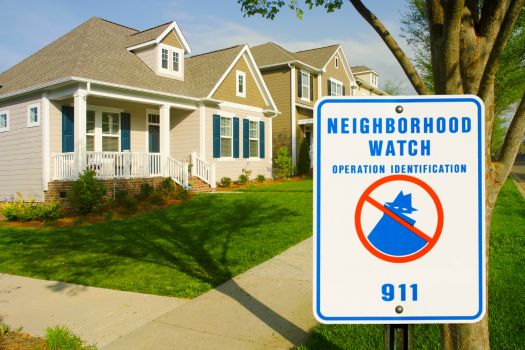“How is the neighborhood?” It’s one of the first things you think about when you start seriously considering a home. And for good reason. You’re not just purchasing four walls and a roof—you’re investing in a community, a street, a lifestyle. You’re choosing the environment you’ll live in every day.
But if you’ve ever asked your real estate agent this very question, you may have noticed a slight pause, a carefully worded response, or even a redirect. Why the hesitation? The answer lies in the intersection of fair housing laws and the ethical standards that guide REALTORS like myself.
I’m Robbie English, Broker and REALTOR at Uncommon Realty, and I’ve built my career on helping clients make confident, informed real estate decisions. That includes understanding why your agent can’t answer everything—and how you can still get the answers you need. Especially when you’re wondering about how is the neighborhood or exploring demographics for home buyers.
Let’s break this down clearly, and show you how to get the insight you need to choose the right home in the right area—legally, ethically, and strategically.

TL;DR – 5 Key Takeaways – How Is The Neighborhood? Here’s What You Can (And Should) Know.
- “How is the neighborhood?” is a fair question—but due to fair housing laws, your agent can’t answer it directly.
- Researching “Demographics for home buyers” and crime data independently gives you an edge.
- REALTORS must avoid language that could imply exclusion of protected classes—know what to ask.
- Robbie English, Broker and REALTOR at Uncommon Realty, empowers you to make informed choices.
- With decades of experience and national recognition, Robbie is your advantage in Austin real estate.
Fair Housing Laws Shape How We Talk About Neighborhoods
When you ask “How is the neighborhood?” you’re probably thinking about things like safety, lifestyle, convenience, community vibe, or perhaps whether you’ll feel comfortable in the area. These are all valid concerns. But answering that question—especially directly—puts real estate professionals in tricky legal territory.
Under the Fair Housing Act, agents cannot comment in ways that could influence or limit housing choices based on characteristics like race, color, religion, sex, disability, national origin, or status. This includes suggesting that a neighborhood is “safe” or “good,” because what one person considers safe or good might not be the same for another—and could be interpreted as steering.
Even something that seems innocent, like saying a place is “quiet” or “perfect for children,” can imply a demographic leaning, and that’s a line we cannot and should not cross.
So when you ask, “How is the neighborhood?” and your agent doesn’t give you a clear opinion, it’s not because they’re unhelpful. It’s because they’re staying on the right side of the law—and protecting your rights in the process.
What Can You Ask Instead?
You can still gather useful insight. Instead of asking your REALTOR about the character of a neighborhood, ask them to guide you to resources that allow you to research the things that matter most to you. And that’s where I come in.
I’ll never point you toward or away from a particular area based on demographics. But I will give you the tools, questions, and strategies that help you discover what’s important to you. That’s one of the many ways I help clients navigate the complexities of real estate with confidence.
How to Research Demographics and Crime Without Overstepping
If you’re trying to learn about demographics for home buyers in a specific neighborhood, or want to get a sense of the community’s makeup, you absolutely can—on your own. The law doesn’t restrict you from seeking that information. It only restricts licensed professionals like myself from influencing your decision based on that data.
So what can you do?
Start with public data. Look at crime reports, census numbers, walkability scores, school performance, and even public forums where residents talk about their neighborhoods. You’re free to draw your own conclusions and choose a place that aligns with your lifestyle goals.
My job is to empower you with methods to do this effectively—so you never feel lost in your search.
Why “Demographics for Home Buyers” Matters in Your Process
Let’s be clear: understanding demographics for home buyers is not about exclusion. It’s about clarity. It’s about understanding if the area fits your lifestyle needs, your commuting expectations, your level of desired activity, and your long-term plans. This phrase gets thrown around in data circles, but for you, it might simply mean understanding who your potential neighbors might be and what types of homes tend to sell in that community.
But always remember: these considerations must be handled with care. The law is there to ensure housing access is equal. It’s not to prevent you from doing your due diligence—it’s to ensure professionals don’t make assumptions or suggest things that exclude others.
That’s why I’ll always provide you with resources, not recommendations, on topics like demographics.
Where to Start: Self-Directed Tools to Answer “How Is The Neighborhood”
So you’re curious about that area near the lake. Or the one with the cozy tree-lined streets. Maybe the high-rise condos downtown with buzz and walkability. Wherever you’re drawn, you should evaluate it strategically.
Here’s how to do it:
Start by identifying what matters to you. Is it walkability? Proximity to your office? Ease of access to parks or public transport? Maybe you want a community with high civic engagement, or one with a strong arts scene.
Whatever your priorities, focus your research around them. From there, look into:
- Public crime maps and safety reports
- Census data and community profiles
- Local public transportation routes
- Zoning and development plans for future growth
- Local news sources and forums
I can walk you through how to interpret this data—not just where to find it.
 Why Most Real Estate Agents Fall Short—and Why Robbie Doesn’t
Why Most Real Estate Agents Fall Short—and Why Robbie Doesn’t
Here’s a tough truth: most real estate agents simply skim the surface. They send listings, write offers, open doors—and not much else. That’s not how I work.
I’m Robbie English, and I’ve spent decades mastering real estate not just for my success—but for your advantage. I’m a national speaker and real estate instructor who teaches other agents how to navigate the intricacies of real estate law, negotiations, and representation. I don’t just know the rules—I teach them. That means when you’re working with me, you’re not relying on surface-level knowledge or generic advice. You’re leveraging years of deep, tested expertise.
And my team? Hand-selected professionals who follow that same mindset. Strategic, experienced, proactive. Our mission is to ensure every step of your real estate journey is protected, informed, and powerful.
What You Can Expect From Your Agent (And What You Shouldn’t)
When it comes to understanding neighborhoods, your agent plays a critical supporting role—not a dictating one. Here’s what I’ll do for you:
- Show you all available properties that meet your criteria—no filters, no assumptions
- Provide detailed local real estate knowledge (property values, zoning, trends)
- Equip you with the right tools to evaluate schools, crime, and community amenities
- Help you evaluate future resale potential and investment strength
- Guide you away from common buyer pitfalls and legal gray areas
What I won’t do is tell you what neighborhood is “better,” “nicer,” or “more appropriate.” That’s your call—and I’ll help you make it with confidence, armed with real facts.
Working With Robbie English Means You’re Strategically Equipped
If you’re still reading, you’re serious about finding the right home—not just any home. And you deserve a partner who’s serious too. When you work with me and my team at Uncommon Realty, you’re getting more than a licensed agent. You’re gaining a real estate strategist.
One who’s taught hundreds of agents how to handle the exact issues you’re dealing with. One who understands how to protect you, how to empower you, and how to bring negotiation strength to your transaction. One who’s spent years mastering what others barely skim.
So when you ask, “How is the neighborhood?”—know that while I won’t tell you who lives there or what kind of people you’ll find—I will make sure you know how to find that out for yourself, without bias, and within the law. I’ll help you see behind the listing photos and marketing fluff and discover the real value of a location.
Because real estate isn’t just a transaction. It’s a decision that shapes your future.
Your Next Step? Start Smart—With the Right Guide
Let’s be honest. There are thousands of agents out there. Some are well-meaning but inexperienced. Others treat your home search like a numbers game. And then there are those of us who take a different approach.
I’m not here to sell you a house.
I’m here to help you make a decision that serves your goals, supports your lifestyle, and stands the test of time.
You want to know “how is the neighborhood”? Let’s find out—together. And when you’re ready to evaluate demographics for home buyers, I’ll be right there to ensure you’re navigating the process with clarity and confidence.
I’m Robbie English with Uncommon Realty. I’ve taught real estate across the country. I’ve spent decades perfecting my process. And I’ve built a team that shares my obsession with protecting and empowering clients.
Choose wisely. Choose strategically. Choose Robbie.
Let’s make your next move your best one.
Bonus Material:
Researching neighborhood statistics and crime rates is a pivotal step in evaluating a potential neighborhood. In Texas, several websites offer comprehensive data that can aid in your research:
1. Texas Department of Public Safety (DPS): The DPS website provides crime statistics for various cities and regions in Texas. You can find detailed reports on crime rates, including types of crimes and their frequency.
2. City-Data.com: This website offers a wealth of information on Texas neighborhoods, including population demographics, housing trends, crime rates, schools, and more. Users can access forums where locals share insights and experiences about different neighborhoods.
3. NeighborhoodScout: NeighborhoodScout provides detailed reports on neighborhoods across the United States, including Texas. You can explore crime rates, school quality, real estate trends, and other relevant data to help you make an informed decision.
4. Local Police Department: Most police departments maintain online databases where you can access crime statistics for specific neighborhoods. You can also inquire about crime rates directly from the department.
5. GreatSchools.org: If you have children or are planning to start a family, researching school ratings and reviews is crucial. GreatSchools provides comprehensive information on schools in Texas, including test scores, parent reviews, and more.
6. Walk Score: Interested in the walkability and amenities of a neighborhood? Walk Score provides ratings based on proximity to amenities like grocery stores, restaurants, parks, and public transportation.
By leveraging these resources, you can gather valuable information about neighborhoods and find the answer to your questions independently.






Leave a Reply